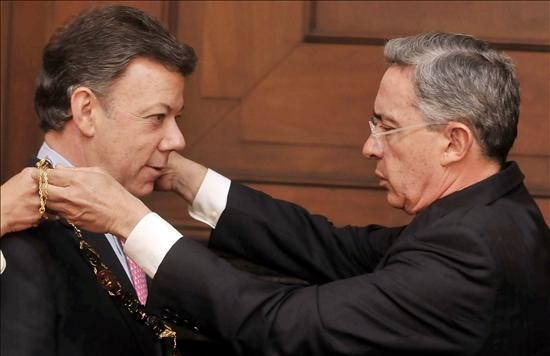Colombia-Venezuela Relations: What Are the Prospects?
Colombia and Venezuela have a history of rocky relations characterized by short bursts of improvement and deterioration.
Four years ago, Colombia -- Washington's closest ally on the continent and a nation that a decade earlier had been widely viewed as on the verge of being a failed state -- bore all the traces of continuing a remarkable transition to a robust democracy. After nearly a decade of battling the country's largest insurgency -- the FARC (Revolutionary Armed Forces of Colombia) -- the tough, take-charge, and polarizing two-term president, Álvaro Uribe, turned over the reins to his defense minister, Juan Manuel Santos.
Surprisingly for many, given his reputation as a hard-liner, Santos's tenor was far more conciliatory than his predecessor's from the moment he was elected in June 2010. He promised continuity on key economic and security policies, but was far more inclined to forge consensus among Colombia's diverse political forces. His search for governance and a reform agenda led Santos quickly to form the National Unity coalition of parties, which accounted for about 90 percent of Congress when he assumed office...
Colombia and Venezuela have a history of rocky relations characterized by short bursts of improvement and deterioration.
On August 7, an important chapter in Colombian-Venezuelan relations that has coincided with the presidencies of Alvaro Uribe and Hugo Chavez will come to an end. These last eight years have been a rollercoaster, with moments of great tension but also occasional pragmatism.
After decades of violence, peace remains a coveted yet elusive goal in Colombia.
 Globovisión / CC BY-NC 2.0
Globovisión / CC BY-NC 2.0